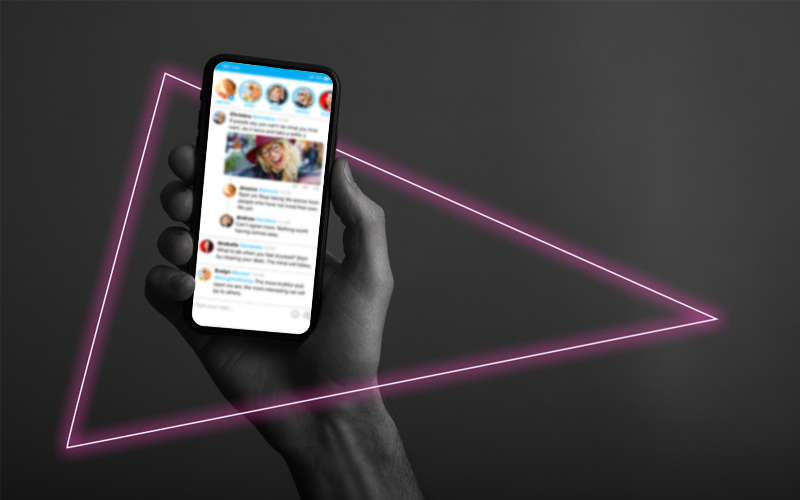Podcast Audio Transcript
Alisha: Hello listeners, this is Alisha; thank you for tuning in to yet another exciting and informative podcast from us at Infosys BPM. Today, we are discussing about the workforce management in the New Normal. And to talk about this, we have here with us, Abhinav Agnihotri, Head - Singapore Operations. Welcome Abhinav. How are you?
Abhinav: I’m doing well Alisha. Thank you for having me.
Alisha: Abhinav, Due to the New Normal we see all around that organizations have amped up their digital initiatives. What kind of digital strategies do you think will play a key role in workforce management going forward?
Abhinav: The past two years have been very eventful. In the New Normal, we enabled our workforce to do their jobs with more autonomy and in new ways. We learned to be even more human-centric, bringing a stronger focus on empathy, care, and wellbeing at work with digitization at the core of it all.
As now our focus is to build a resilient, agile, and inclusive workforce, there are 3 digital strategies which will play a key role in workforce management.
- Adoption of cutting-edge technologies and reskilling of current workforce
- Putting employees at the heart of technology, creating a human-digital experience
- Transitioning from designing for efficiency to designing for resilience, with inclusion at its core
I think these strategies will make any organization more agile and hyper-productive.
Alisha: Yes, I fully agree.
A key aspect of remote working is the need for employee engagement. What digital strategies can help ensure that?
Abhinav: Alisha, remote working has its pros and cons. It’s no secret that remote work offers many benefits to both employees and employers. Employers get access to a global talent pool, and employees get the freedom to work from a convenient location. At the same time remote work has its own challenges, one of which is to engage employees.
At Infosys BPM we are working on multiple strategies to ensure full employee engagement even while working remotely. An example is enabling easy access to our InfyMe mobile app. The InfyMe app is part of “Employee Experience” program started with the goal to make all key transactions available on the go and provide the best experience possible to all our employees.
We are also making use of a next-gen learning solution known as Infosys LEX, where learners can learn on the go as well as interact with a voice-enabled ‘learning assistant’ for any guidance. With an ever-evolving range of curated content, LEX facilitates learning based on interest, skill set, and function/role.
These are good examples of the organization behaving like a Live Enterprise.
Lastly, we are extensively seeking the voice of our employees, through employee engagement surveys, to identify improvement opportunities.
Alisha: It sounds like you are committed to making a change even while working remotely.
Could you provide key distinctions of digital workforce management as against the traditional model?
Abhinav: A major distinction of digital workforce management is the capability to be agile, connected, and current. This model is helping us move away from reactive to proactive workforce planning, by modelling numerous scenarios. This helps us achieve consensus on the best, worst, and likely cases. Also, most importantly, the organization is in a much better position to respond and adapt quickly.
Leaders, hence, can better execute workforce planning. Our leaders have a good idea of what can and cannot be done outside the traditional processes. The pandemic has forced both the pace and scale of workplace innovation. Many are finding simpler, faster, and less expensive ways to operate. We are able to move away from prescribed approaches and standardized solutions.
Our ability to recognize and proactively equip our teams with not just physical resources, but skills, mindsets, behaviours, and values, brings in the key distinction vis-à-vis the traditional approach.
Alisha: Yes, I believe that is one of the apparent advantages of the New Normal.
Now, let’s look at some client success. Have you implemented digital workforce strategies for any clients? Could you give a brief insight into any such success stories?
Abhinav: Covid had presented an extremely unique BCP situation which has kept evolving. As the world continues to learn and adapt to this pandemic, everything around it changes frequently.
Our strong partnerships with our clients enabled us to foster a client-centric culture. During these challenging times, every person in our organization understood and embraced the importance of continuing to deliver to our usual high standards despite any challenges.
To cite a case in point: For one of our clients we enabled remote delivery, management, and governance to become more digitized through impactful implementation and people empowerment. Let me elaborate on this.
- Line managers were reskilled and equipped in managing large teams of remote employees digitally.
- Reports were produced and managed digitally, and they were more informative, detail-oriented and required less manual intervention, maintenance, and explanation.
- A digital document-handling process has replaced the physical process.
- A global communications system utilizing a centralized platform was connected to employees’ mobile devices enabling instantaneous, 24x7 information transfer.
- Digital information security measures were enhanced for remote working.
- Sourcing, hiring, and training of staff were enabled through our digital platforms.
Alisha: That must have resulted in great customer experience. Abhinav, thank you so much for coming back with us for another engaging podcast.
Abhinav: Thank you, Alisha. It was a pleasure.
Alisha: Dear listeners, if you enjoyed our podcast today, please don’t forget to share and like it on social media. Our social handles are mentioned in the podcast page. The podcast will be available on various platforms like Google Podcasts and Spotify, in addition to our website.
Also, if you have any queries, do reach out to us through the email address on the podcast description. Watch this space for more exciting podcasts coming up. Once again, thank you for tuning in, stay healthy and socially distanced. Have a nice day!






